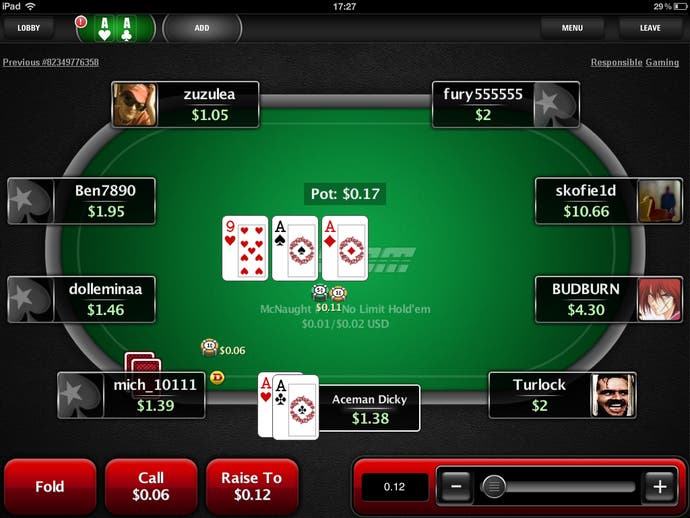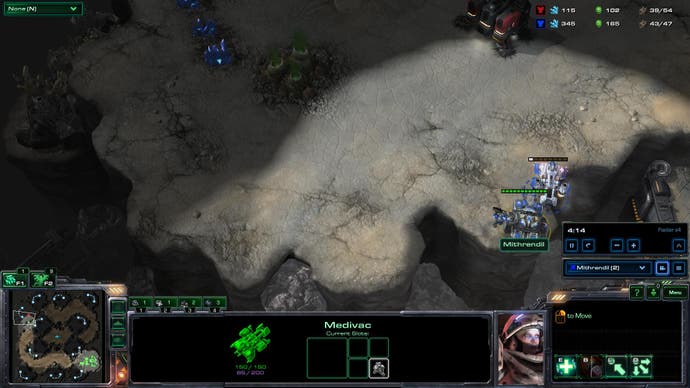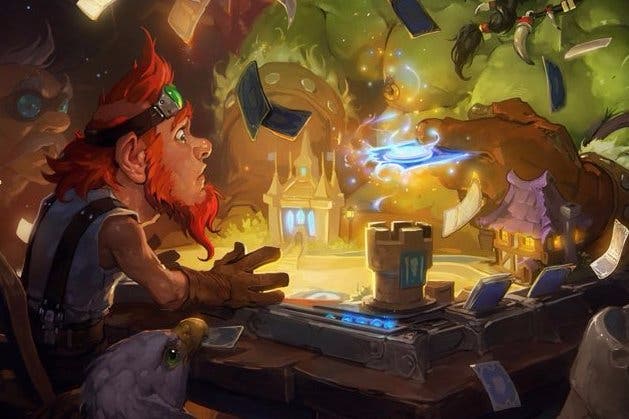Rich Stanton on: Skill and the random element
RNGenius.
After winning a game of Hearthstone, you sometimes receive a friend request. It is always a Trojan Horse. The game is designed to limit communication between players to a small number of pre-canned phrases, and this frustrates the eloquence of certain individuals who want to ensure that their conqueror knows it was all down to luck. Accept the request and some variation of this will follow: lucky ******, they'll tell you, that ******* draw was ******* ******* you lucky ****.
The most interesting of these types napalm the chat box and finish up with a devastating flourish about how Hearthstone is broken. This is an extreme version of a not-uncommon view within certain communities that random chance is a bad mechanic, punishing 'skill players' and rewarding 'casuals.' Hearthstone's mechanics do involve plenty of luck, and it can be frustrating when you get a poor draw or a losing opponent top-decks just the card they need (though I somehow avoid berating them for it). Randomness as a design principle, however, is about so much more than this - and to me it makes rather than breaks games.
Randomness can refer to a lot of design choices and mechanics. The appeal of a great procedurally-generated game like the Binding of Isaac is obvious: the elements stay the same, but no two playthroughs are alike. The randomised loot drops in Monster Hunter are always exciting to receive, and when you score a Ruby or a Mantle it's like hitting the jackpot. And then there's what are usually referred to as Random Number Generator (RNG) mechanics like Hearthstone cards which deal out randomised damage, critical hit percentages in RPGs, or board layouts in puzzle games.

RNG can even be an important way of emulating realism in a digital context. A goalkeeper might save a particular shot nine out of ten times, but even the best sometimes drop clangers. The only way to account for this in a video game is random chance - your FIFA 15 goalie will play like a god, and then in the 80th minute let a bobbler sneak past. The outstanding Football Manager series would be nothing without random elements: the freak season-long injury to your defensive lynchpin is cut from the same cloth as your star striker's hat-trick in a six-pointer.
Far from luck being a game-breaking mechanic, it is the whole reason certain designs sing. Consider Drop7's random layouts, which can almost instantly be parsed by an experienced player as either good or bad in the narrow sense of high score chasing. But what a boring way to think about it. Drop7 is, like most puzzle games, about learning how to manipulate the mechanics and exploit the kinks therein to keep going. The fun here is in first mastering the systems and then applying these skills across layouts at both ends of the spectrum - there's just as much joy in wringing something decent out of a nightmare setup as in romping through a dream scenario.
Everything is a balance of course, and over-reliance on random elements in a design will lead to chaos and frustration. But favouring the latter can lead to an ultimately less engaging design. Randomness can be the most powerful and difficult-to-use tool a game designer has access to. It is powerful because it can effectively be a tiny algorithm in a much greater work that serves to keep players awake and interested. It is also difficult to use because the designer can only control the root implementation, and cannot possibly test every outcome - so whether it ultimately works in the manner intended is its own gamble.

This link between randomness and skill is worth pausing over. Those who are not fans of randomness favour the term 'luck' because it seems to form a natural opposition to skill. This is a false dichotomy: luck and skill are inextricably intertwined, each a platform and an opportunity for the other. The variety introduced by luck lets skill shine: the better a player is at a given game, the better s/he will be able to react to unfamiliar circumstances.
The great pleasure of randomness is that it leads to less predictable outcomes and thus forces more interesting decisions. Consider Housemarque's shooters alongside Eugene Jarvis' Robotron: 2084, a comparison that springs to mind because the pair are currently collaborating on what is rumoured to be a new Smash TV.
Housemarque is great at wave-based design, creating bespoke enemy combinations and placements that players must adapt to. The enemies have fixed methods of attack and you learn how to deal with each. This is fine as far as it goes, and Housemarque's games are highly-polished and feel great to play, but it's a design philosophy that ultimately leads to a player memorising what's coming and the best tactics to use. There is, for the experienced player, no element of surprise.

Robotron: 2084 is also a wave-based shooter, with fixed configurations, but the movement of certain enemies has random quirks, and the way they attack has random modifiers. The Enforcer, for example, fires not at the player character but within ten pixels, and the trajectory may also curve - sometimes leading to wild misses, and sometimes to shots that feel like they're homing in on you. The Brain enemy fires a cruise missile that seeks out the player, but moves randomly while doing so rather than in a straight line.
One of the small tragedies of falling in love with any game is that, over time, repetition will wither it into predictability. But well-executed randomness introduces entropy to a system, and in pushing back against it a player by necessity becomes more intimate with the mechanics. Not every game's foundations can withstand such scrutiny, of course, but when they can it is a match made in heaven.
Randomness has too many design facets to be summed up neatly, but we can perhaps wave in the direction of a principle. Robotron: 2084 shows the difference between designing behaviours or simply scripting. With the former a player can never learn a specific piece of choreography, but must come to see the underlying patterns instead. They have to learn to play the game, rather than just getting through it. And that never gets old.









